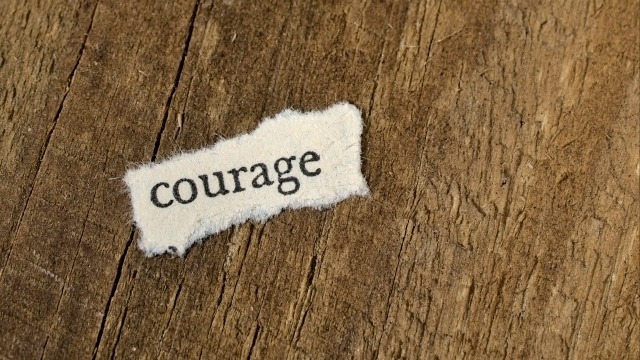Opinion: The political courage of Bridget Archer, Voice working groups stands out from pandering

By Mark Kenny
A version of this article was originally published by The Canberra Times.
Three years before John F Kennedy was elected, he won the Pulitzer Prize with his book Profiles in Courage.
The year was 1957. The then-senator who would become America's 35th president had a longstanding interest in instances of political bravery. A thesis at Harvard had looked at why British leaders dithered through the 1930s as Nazi Germany re-armed. It became a book too, Why England Slept.
Through a series of biographical case studies, Profiles in Courage highlighted those rare judgement calls made on principle. Decisions derived of conscience despite existential political risk.
The great Irish-English conservative Edmund Burke had argued in 1774 leadership in a democracy must entail more than a simple pandering to popular appeal.
Almost two centuries later Kennedy went further, arguing voters "will not condemn" political representatives whose principles lead them to tough decisions, but will instead "reward courage, respect honour, and ultimately recognise right".
This brings us to our own politics, where both courage and cravenness seem unusually observable right now.
Consider the Greens party, which is often blamed for sinking Rudd Labor's emissions trading scheme. By voting with the Coalition in 2009, the Greens helped touch off a series of dominoes that panicked both major parties into leadership changes, elevated Tony Abbott, hollowed out the sensible centre, and made serious climate policy unattainable.
With still has no economy-wide emissions policy, the Greens party now stands (again on principle) against Labor's 2023 answer - a beefed-up, Coalition-era safeguards mechanism to drive down emissions.
Leader Adam Bandt insists his party's support requires the inclusion of a ban on any new coal and gas projects. The government is not budging, but neither is he. The environmental party seems prepared to reprise the serious opprobrium of 2009-10 if that's what it comes to. This resolve may not be politically smart, but it is principled.
Of course it is only central here because, in a spectacular misreading of voters at the last election, Peter Dutton's Coalition has retreated completely from climate progress. That is, despite the safeguards mechanism being its idea, Dutton has refused to negotiate over any expansion.
Clearly appalled, Tasmanian Liberal Bridget Archer has been forced to rise above partisan politicking to call for constructive engagement. Archer, a backbencher with more grit than most on either side, is no grandstander, having actually crossed the floor multiple times in her brief career. She voted for the recent censure of Scott "secret ministries" Morrison. Voted in favour of Labor's 43-per-cent 2030 target. Backed legal protections for transgender people, and branded the Morrison-era cashless debit card, punitive. She also defied her party to support a bill from Helen Haines for an anti-corruption body.
An Australian equivalent of Profiles in Courage would certainly include Archer. It might also include Victorian Liberal leader John Pesutto, who is fighting to expel a Liberal MP Moira Deeming over an anti-trans rally she attended along with neo-Nazi fanatics. The moderate Pesutto has put his leadership on the line to get Deeming out, while conservative lickspittles from Dutton's federal party room back Deeming.
Back in Canberra, Anthony Albanese appeared with the Referendum Working Group on Thursday to release the wording for the Voice referendum. One should not underestimate the Prime Minister's gamble here. Albanese is now all in for this nation-building change but with Dutton playing the angles of populism and fear, a hard road lies ahead.
Purposeful leadership and populist toadying are now on a collision course. Albanese had already risked his prestige by holding the referendum. Now he must sway a difficult public debate in circumstances no previous referendum has ever survived. Failure would savage national morale and could well cost him the prime ministership. Yet Albanese is no ingenue. His courage, plain.
Dutton is another story. By stringing advocates along for the last ten months, he presents a study in double-speak and non-leadership. His disingenuous method has been to cavil and question. Now he too is constrained. Backing the "yes" case (if ever possible) would mean defying a majority in his party room he helped grow. Archer can be expected to hold, and NSW senator Andrew Bragg also, but few other moderates will campaign forcefully for "yes". Those against favour failure. They will campaign for 21st century Australia to be the country that silenced its First Peoples all over again. For what? Politics?
But if "political" courage (and its opposite) gets all the credit, a larger point is missed. Remember the people on stage with Albanese on Thursday and the many thousands they represent. Names like Langton, Calma, Dodson, Mayor, Pearson, and of course, Davis. Imagine what they have risked by inviting their nation to join with them. It is no small thing. Courage. Personified.
While they were unveiling the wording, a group of women was holding an event in a nearby committee room. Most had been handed a death sentence by a rare but deadly form of breast cancer known as triple-negative. It metastasises fast and requires an expensive therapy not yet subsidised.
With months to live, spokeswoman Alison Day still fronted up, eager to improve early detection and push for available, affordable treatment. All this for a world she knows she will not inhabit.
Selfish politicians didn't even need to leave the building to find real courage and selflessness. It was all around them. Time more of them found a bit.
Mark Kenny is a professor at the ANU Australian Studies Institute and host of the Democracy Sausage podcast.








